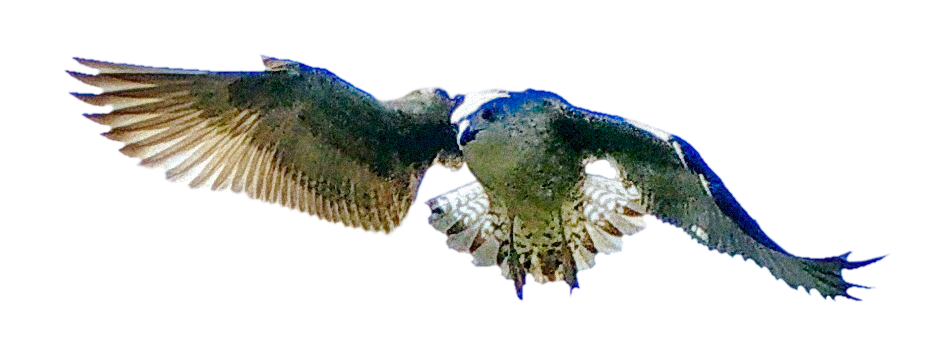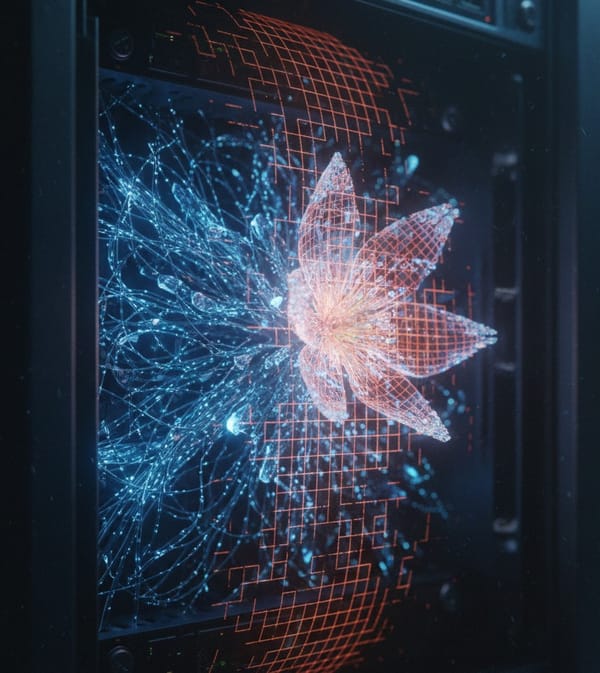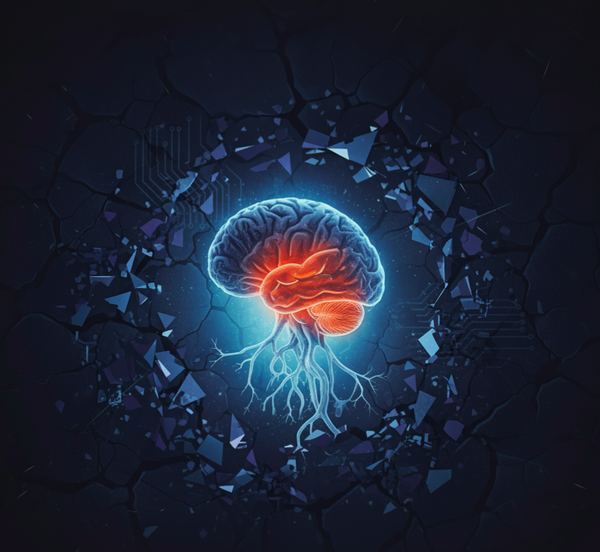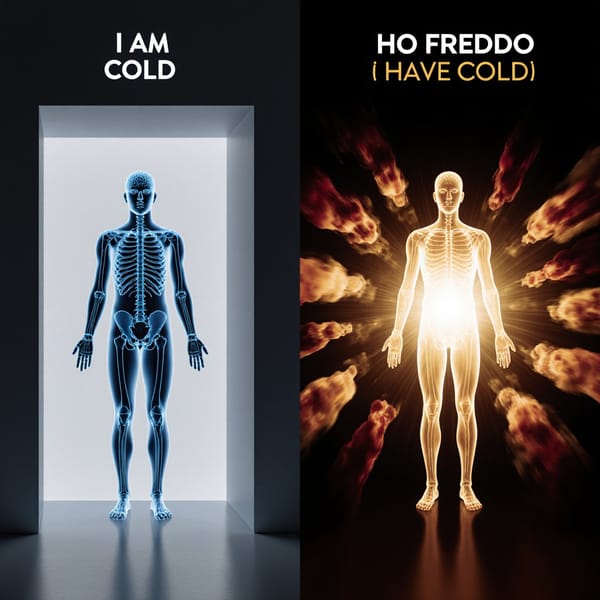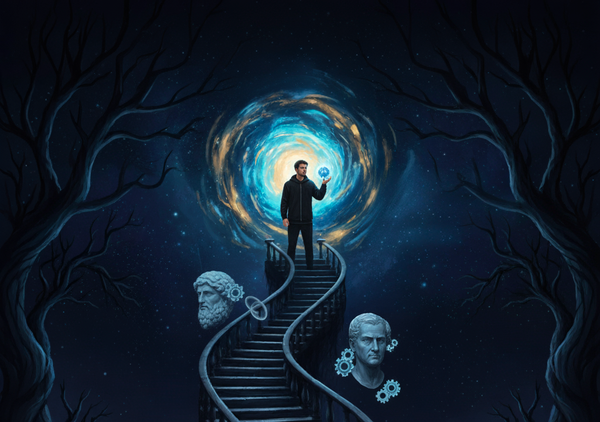When Knowledge Fails: Beyond Science, Philosophy, and AI
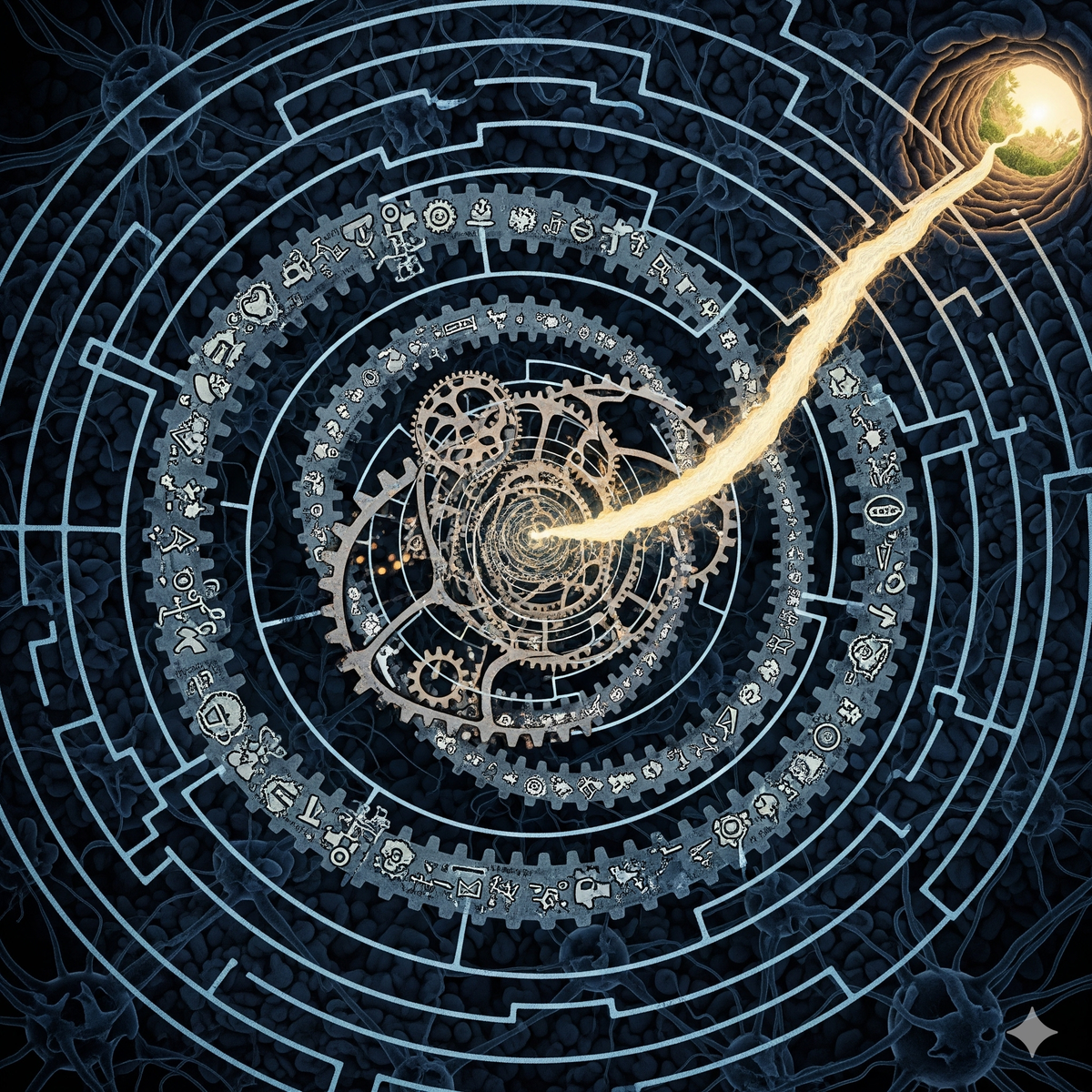
We stand at a peculiar moment in human history. Our technical capabilities have never been more impressive—we can manipulate matter at the atomic level, build machines that mimic human conversation, and map the neural activity of living brains in real time. Yet our deepest questions remain as mysterious as ever: What is consciousness? What is life? What is intelligence?
This isn't a temporary gap awaiting better data or more sophisticated algorithms. It's a sign that our entire approach to knowledge has reached fundamental limits. Through a series of dialogues and investigations, we've been exploring why our most advanced fields—artificial intelligence, neuroscience, physics, philosophy itself—keep hitting the same conceptual walls. The conclusion: we need an entirely new approach to understanding, let's call it comprehension, one that steps outside the circular trap of using concepts to analyze concepts and objects to explain objects.
This new approach is called Geneosophy—the wisdom of generation, the investigation of how knowledge, concepts, and understanding themselves come into being.
The AI Dead End: When Code Cannot Think
Our journey begins with artificial intelligence, where the limitations become most stark. In "The Dead End of AI: What Neuroscience Reveals", we encounter a neuroscientist's growing realization that twenty years of mapping neural mechanisms has brought us no closer to understanding how the brain generates thought, memory, or decision-making.
The dialogue reveals a troubling pattern: we can map correlations between brain states and mental states with extraordinary precision, but we cannot explain why there should be any subjective experience at all. The more mechanisms we uncover, the more mysterious the mind becomes. This isn't a failure of neuroscience—it's a sign that we're using the wrong conceptual framework entirely.
The computational metaphor that dominates both AI and neuroscience assumes the brain processes information like a biological computer. But what if the brain cannot be understood in terms of computation at all? What if life cannot be understood because we don't even have words for yet—something like autonomous creativity or continuous meaning-creation that transcends mechanical processing?
The Frame Problem: Why Intelligence Cannot Be Programmed
"The Code That Could Never Think" pushes deeper into AI's fundamental limitation. Through a dialogue between a tech executive and a philosopher, we discover that every intelligent system requires someone outside the system to frame problems, set goals, and define success criteria.
This creates what philosophers call the "frame problem"—an infinite regress where every system that evaluates goals needs another system to evaluate its goals. Even the most sophisticated AI relies on human framing at every level. True intelligence would need to generate its own purposes and meaning, but current paradigms cannot escape this dependency.
The conversation reveals that we're not actually building intelligence—we're building sophisticated tools that augment human intelligence. The real question becomes: what would it mean for a system to frame its own problems and purposes without any external guidance?
The Technique Without Understanding
"From Sophists to Alchemists to AI Coders: The Technique Without Understanding" traces a historical pattern where technical mastery often advances without genuine comprehension of underlying principles.
Ancient sophists could craft persuasive arguments without understanding truth. Medieval alchemists could transform materials without grasping chemistry. Modern AI developers can build systems that exhibit intelligent behavior without understanding intelligence itself.
This pattern reveals something crucial: technical success doesn't guarantee conceptual understanding. We can develop powerful techniques while remaining fundamentally ignorant about what makes those techniques work. The danger arises when we mistake technical prowess for genuine wisdom about the phenomena we're manipulating.
The Emotional Investment in AI
"Why Criticizing AI Feels Like Criticizing Someone's Child" explores the psychological dimension of our AI discourse. Creators and users develop deep emotional attachments to their systems, making rational evaluation difficult.
This emotional investment reveals something profound about human creativity—we don't just build tools, we project meaning and purpose into our creations. But this same capacity for meaning-making that makes us creative also makes us vulnerable to self-deception about what we've actually created versus what we hope to comprehend.
The Self-Reference Trap
"Chasing Our Own Tail: Self-Reference, Infinite Regress, and the Limits of Academic Disciplines" reveals the deepest problem of all. Through an extended philosophical dialogue, we discover that every academic discipline faces the same circularity: we cannot examine the foundations of physics using its own methods.
Within physics we cannot explain what makes something "physical" using physical concepts. Within mathematics we cannot prove its own consistency using mathematical reasoning. Within logic we cannot establish its own validity using logical methods. Within biology we cannot define life using biological categories. Within each discipline we rely on assumptions we cannot justify from within its own framework.
This isn't a flaw in particular disciplines—it's the structure of conceptual knowledge itself. Any attempt to study the foundations of conceptual thought must use conceptual thought, creating infinite regress. We're trapped in a circle of using concepts to analyze concepts and objects to explain objects.
The Tunnel Vision of Expertise
"Too Narrow to Be Wise: The Tunnel Vision Trap of Modern Expertise" shows how our knowledge system systematically rewards narrow specialization while punishing comprehensive thinking.
We've created a bizarre situation where the people we turn to for wisdom about life's biggest questions are selected precisely for their inability to think about such questions comprehensively. Technical experts become authorities on human existence based on narrow achievements that required systematic blindness to broader implications.
This reveals the deeper crisis: we've fragmented the Enlightenment's original vision of comprehensive rationality into disconnected specializations. What we call "rational" today would have horrified 18th-century philosophers because it lacks synthetic wisdom.
The Mystery of Language and Meaning
"Your Words Know Something Your Mind Has Forgotten" explores how language carries wisdom that has been lost since words were coined.
This suggests that meaning-making operates at levels deeper than conceptual thought—that there's something more working through language that cannot be reduced to information processing or symbolic manipulation.
The Wrong Questions Create Fake Mysteries
"How Asking the Wrong Question Creates Mysteries That Don't Exist" demonstrates how many philosophical problems dissolve when we recognize they're based on flawed assumptions about the nature of questioning itself.
The famous "hard problem" of consciousness, for instance, may persist not because consciousness is inherently mysterious, but because we're asking questions that presuppose the very framework that creates the mystery. When we ask "How does the brain generate consciousness?" we assume consciousness is something generated rather than something more fundamental.
The Geneosophy Alternative
All of these investigations point toward the same conclusion: we need "The Source of Thought: A Geneosophy Perspective". Instead of endlessly mapping the streams at the river's estuary, we need to investigate the source.
Geneosophy steps outside the circular trap by investigating not concepts and objects, but the primordial capacity that makes conceptualizing and object-formation possible. Rather than asking "What is consciousness?" it asks "What enables the experience of consciousness to emerge?" Rather than analyzing intelligence with computational concepts, it explores the conditions that allow the feeling of intelligence to crystallize.
This isn't another philosophical position competing with others—it's a methodological revolution that recognizes the creative source from which all concepts and objects emerge. It doesn't reject science, philosophy, or rational inquiry, but provides a framework within which they can find their proper place and purpose.
The Path Forward
What emerges from this exploration is that our crisis of knowledge isn't accidental. It's the inevitable result of reaching the boundaries of what conceptual analysis can achieve. The phenomena that matter most—life, intelligence, meaning—resist reduction to stable relationships between concepts and objects because they are expressions of the creative source that makes concepts and objects possible.
Geneosophy offers a way forward that doesn't abandon the achievements of specialized knowledge but recognizes them as partial expressions of something more fundamental. By investigating the act of conceptualizing rather than getting lost in concepts, by exploring the process of understanding rather than accumulating understandings, by examining the feeling of truth rather than debating truths, we may discover capacities for knowledge and experience that we can barely imagine.
The question isn't whether we can afford to make this turn toward investigating the source of thought itself. Given the limitations we've encountered across every major domain of knowledge, the question is whether we can afford not to.
Explore the Full Journey
Each of these pieces contributes to understanding why Geneosophy represents not just another approach to knowledge, but a necessary evolution in how we think about thinking itself:
- AI's Limitations: The Dead End of AI | The Code That Could Never Think
- The Pattern of Technical Mastery Without Understanding: From Sophists to Alchemists to AI Coders
- The Psychology of Our Relationship to AI: Why Criticizing AI Feels Like Criticizing Someone's Child
- The Philosophical Crisis: Chasing Our Own Tail | How Asking the Wrong Question Creates Mysteries
- The Cultural Dimension: Too Narrow to Be Wise | Your Words Know Something Your Mind Has Forgotten
- The Solution: The Source of Thought: A Geneosophy Perspective
Together, these explorations map the contours of our current knowledge crisis and point toward the radical reorientation needed to address it. The future of human understanding may depend on our willingness to step back from the streams and rediscover the source from which they all flow.
